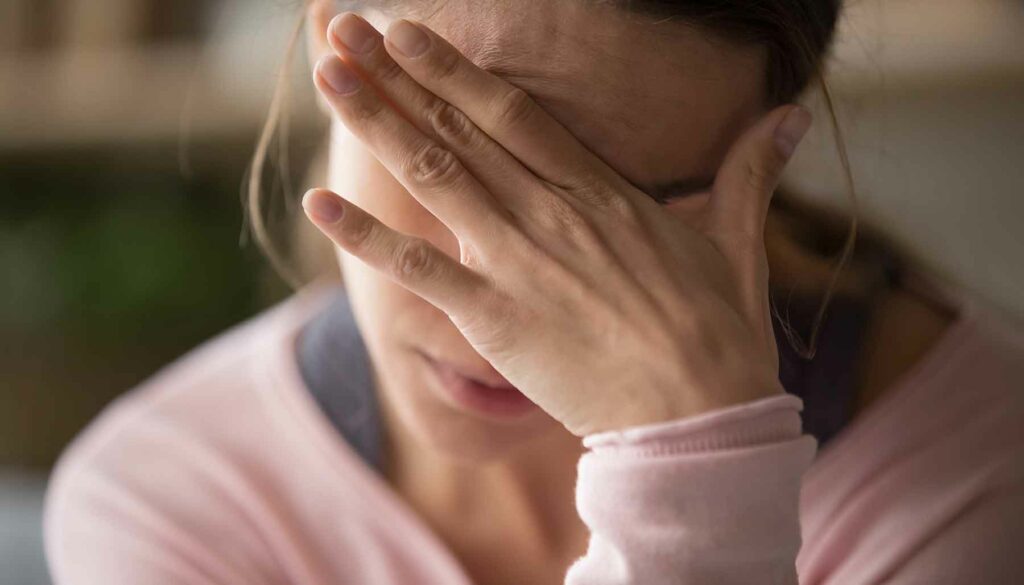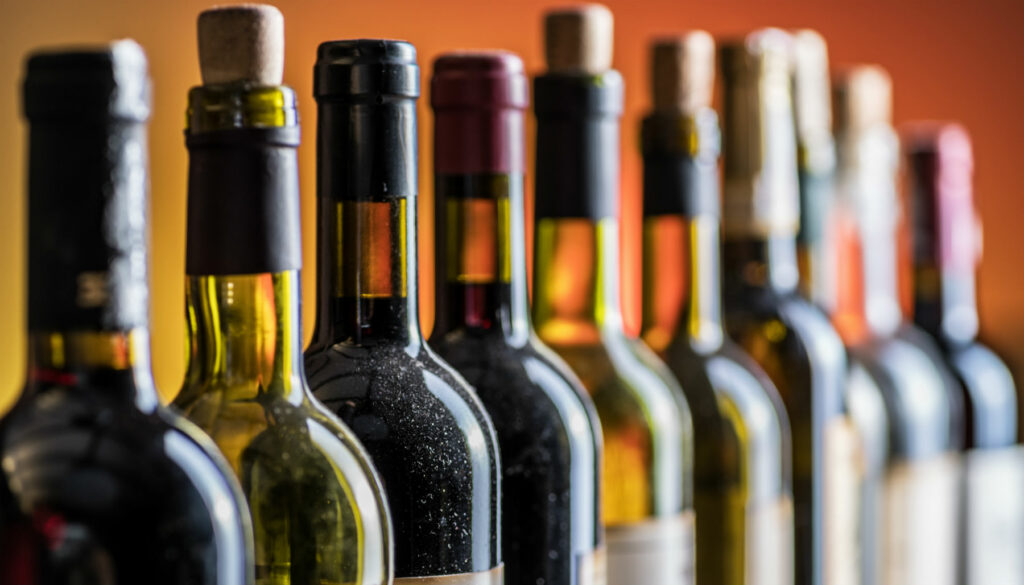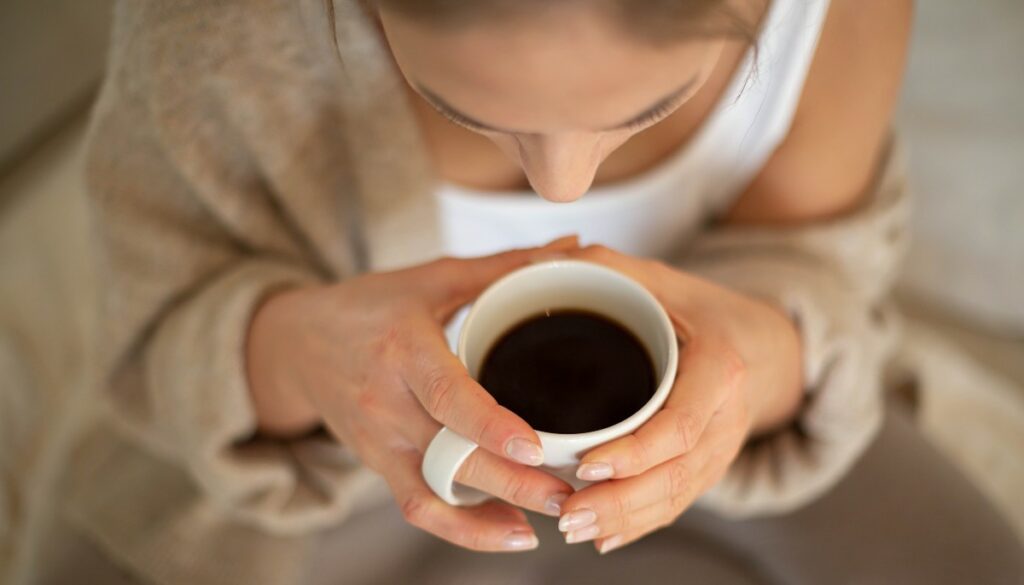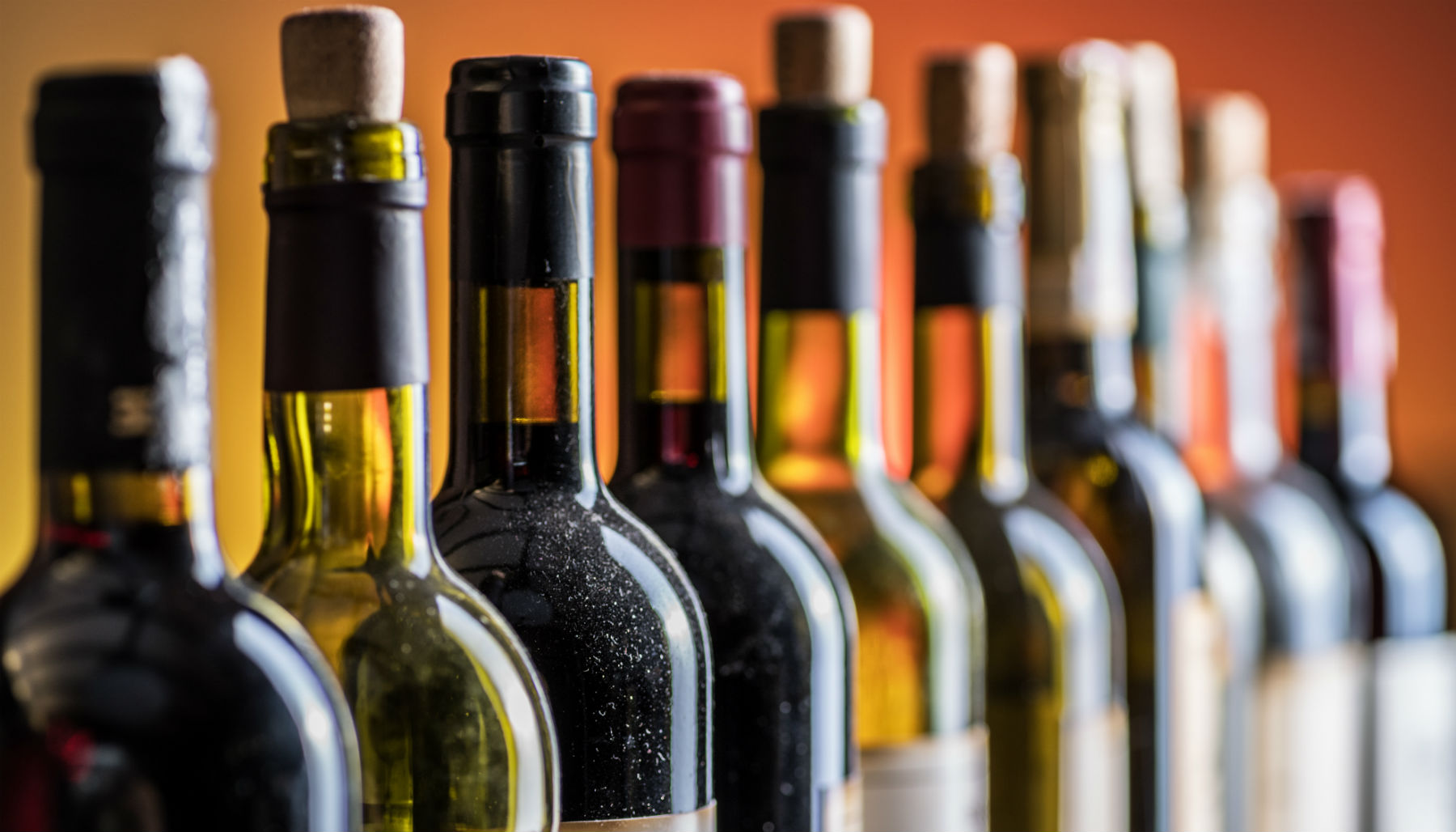There’s nothing like hanging out with friends and enjoying a good glass of wine.
I get together with my friends every so often for a book club. Well, it’s kind of a book club. It might be a wine club with the occasional book. In any case, we gather together once every month or so. I always look forward to seeing everyone, especially since it seems like we’re all too busy these days. We leave the kids at home, pour a glass, and hang out for a while. It’s a nice change of pace, for sure.

What isn’t so nice, though, is that wine headache. And chances are, you know exactly what I’m talking about. I don’t mean the headache you get from drinking too many glasses. That’s a different thing entirely! (And if you want to prevent a hangover, check out this ultimate guide.) For many people, drinking just a single glass of wine (usually a red) can lead to a terrible headache. That headache may also be accompanied by nausea and flushed skin.
If you find yourself getting headaches from red wine – even just a single glass – you are not alone, even if your friend sitting next to you isn’t suffering the same. It seems to be relatively common.
Even still, there is no single explanation to be found. There’s some disagreement about what actually causes that headache, and several theories have been proposed. If we’re being honest though, there could be more than one explanation. Everyone is different, and we could all be reacting to different ingredients.
To figure out what is causing your red wine headache, you might have to do a little trial and error to see what helps.
What Is It About Red Wine That Causes Headaches?
First, let’s talk about some of the theories. What is it about red wine specifically that induces headaches? It seems to happen with a glass of the red stuff more often than any other alcoholic beverages, including white wine and other varieties. This has led to some theories involving ingredients and compounds that are in red wine.

Sulfites in Wine
Sulfites found in red wine are sometimes blamed for wine headaches. About 1% of the population, or 1 in 100 people, are sensitive to sulfites in some way. Seems like a pretty obvious choice, right?
Wine does, in fact, contain sulfites. But as it turns out, so do a lot of other things. White wine has more sulfites than red. You can find sulfites in soy sauce, chips, and pickles. And dried fruits can contain up to 10 times as many sulfites as wine.
It’s also worth noting that sulfite sensitivity usually causes breathing problems, not headaches. In other words, it’s probably not the sulfites!
Tannins in Wine
Many people theorize that tannins in red wine are to blame for the dreaded wine headache. These are naturally-existing compounds that are present in all parts of the grape plant. Because red wine is made with whole grapes, skin included, it includes more tannins than white wine, which is only made from the grape’s juice. And red wine is the one that gives us the most headaches, so it makes sense that people would point at tannin. It is possible to be sensitive to tannin, after all.
The only issue, though, is that tannins are present in many more places besides wine grapes. Things like dark chocolate, tea, some berries and nuts, and soy are also all very high in tannin. If these foods don’t bother you but red wine does, it’s not the tannins.

Histamines in Wine
Perhaps histamine is to blame. This compound is found in grape skins (which are used to make red wine) and is also created through the fermentation process. This is the same stuff produced by the body’s immune system to help your body get rid of something that’s bothering you – a.k.a., an allergen.
A histamine sensitivity can make you more susceptible to a headache. There are plenty of foods that are also naturally high in histamines, particularly aged and fermented foods. This is why red wine and other alcoholic beverages contain histamines. But this also means that items like aged cheese, sauerkraut, tofu, pickles, and aged meats are pretty high in histamines, too. If these foods are causing you problems too, you might be reacting to histamines.
As an added note, if you have sensitivity to histamine-rich foods, some prescriptions and over-the-counter medications can interfere with the enzyme needed to break down histamine.
Tyramine in Wine
Some believe tyramine might be the problem. Tyramine has been shown to be a trigger for migraine sufferers. It is a byproduct of the breakdown of an amino acid, so you’ll find higher levels of it as foods age. This naturally occurring trace amine is found in wine, along with a variety of other foods like aged cheese, cured meats, yogurt, soy sauce, pineapple, coconut, citrus fruits, and more.
If you have trouble with these other foods, tyramine could be the issue. However, it’s unlikely that you would react to tyramine in a glass of wine, but not in aged cheddar or an orange.
How to Avoid Wine Headaches

While there are plenty of theories on why red wine gives some people headaches, we don’t really have an answer. It’s likely that our headaches are caused by a combination of things. It’s also likely that not everyone is getting a headache from the same thing. We are probably all reacting to different ingredients and compounds.
That means that it’s going to take some experimentation to find a solution that works for you! What prevents my wine headache might not work for you, and vice versa.
Drink Water Before and During
Consuming alcoholic beverages, including wine, can dehydrate you. That’s because alcohol is a diuretic, causing you to lose all those vital fluids and electrolytes. You don’t have to drink a ton to wind up with that pounding feeling, either. Even mild dehydration can cause a headache.
The easiest way to combat a dehydration headache? Drink more water! Staying hydrated all the time is important, but drink an extra glass of water before you have that glass of wine. You might want to also sip on water while you enjoy that wine. If you plan on having a second glass, drink another glass of water before it, too.

Try Taking a Non-Drowsy Antihistamine Before Drinking Wine
Some people can’t metabolize histamines properly because they have low levels of the enzyme needed to break it down. Clearly, histamines in wine could cause adverse effects for these individuals.
If you suspect the culprit might be histamines, taking an antihistamine prior to drinking wine might help. Make sure it’s the non-drowsy kind! Old-school antihistamines (Benadryl or diphenhydramine) that can make you drowsy or cause other side effects will be intensified by alcohol consumption. Mixing them with alcohol is not safe.
Try Wine Drops
These days, you can find wine drops, a product that claims to prevent wine headaches and other adverse reactions from drinking a glass. The drops reduce or eliminate sulfites and tannins. They come in a little bottle, and you just put a few drops in your wine before you drink it.
Clearly, if sulfites or tannins are the culprit, these drops could prevent the dreaded wine headache. That is, if the product really does remove sulfites and tannins. They only take about 20 seconds of your time, and don’t change the taste of the drink. They are relatively inexpensive, so it might be worth a try.
Drink Some Caffeine
Wine works as a vasodilator in the arteries. It opens, or dilates, blood vessels. And really, any alcoholic beverage can dilate those blood vessels. If dilated blood vessels in the brain are the cause of your headache, perhaps a cup of coffee can help.
Caffeine does the opposite. It constricts blood vessels, which could counteract the effects of alcohol. Try drinking a caffeinated beverage, like strong coffee, before sipping that glass of wine.

Try Different Types of Wine
No two wines are the same. Each variety of wine and every brand is distinct. They are made with different grape varieties, given different additives, and even the process and can be different.
One brand may give you a headache, but the same variety of wine from another brand might not. Or, you might discover that only certain kinds of wine cause it, regardless of the label. If you always get a headache but you also always drink the same wine, it might be time to try a few different kinds. Who knows, you might find a new variety or brand that doesn’t give you a pounding head.
Don’t Drink Wine
Obviously, the best way to avoid a wine headache is to not drink wine. This isn’t really the most fun answer, but it is the most effective. If every glass of wine is accompanied by a headache, it might be time to drink something different!













